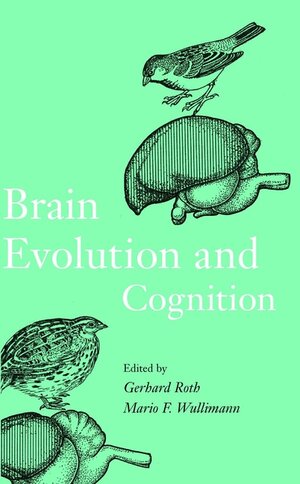
×
![Buchcover ISBN 9780471331704]()
"Brain Evolution and Cognition is one of the best testimonies to the liveliness and richness of the debate on brain evolution and cognition as it stands today. In a subject (consciousness) where people so often speculate from thought-experiments and intuition, it's particularly gratifying to read such rigorously grounded thinking. this book is certainly a welcome contribution and a valuable read to all of those puzzled by that most amazing of organs - the brain." --Metapsychology Online Book Review (Isabel Gois, King's College London)„. one of the best testimonies to the liveliness and richness of the debate on brain evolution and cognition as it stands today. a welcome contribution and a valuable read.“ (Metapsychology Online, November 25, 2001)„Biologists in various specialties address such questions as whether it is possible to draw principles of brain evolution; why some brains become large and complex, others become small and simple, and still other remained as they were for hundreds of millions of years.“ (SciTech Book News, Vol. 25, No. 4, December 2001) „. one of the best testimonies to the liveliness and richness of the debate on brain evolution and cognition as it stands today.“ (Metapsychology Online, November 25, 2001)
Can one fully understand the mechanisms of brain evolution? Why have some brains become large and complex, and others small and simple, while still others have remained the same for hundreds of millions of years? Where, how, and why did cognition evolve? Is there any definable relationship between cognitive function and brain structure and function? These are just some of the questions posed by the contributing authors of this unique book. By bringing together two intrinsically related topics-the structural evolution of the brain and the concomitant evolution of cognitive functions-Brain Evolution and Cognition addresses the much debated topic of brain evolution, cognitive functions, and the relationship between them.
Uniting information on structural brain variability and cognitive aspects in one text, this book provides a survey of the current status of what is known about animal cognition and its relationship to the underlying diversity of brain structures. This volume cuts across boundaries by introducing data on various species and also:


